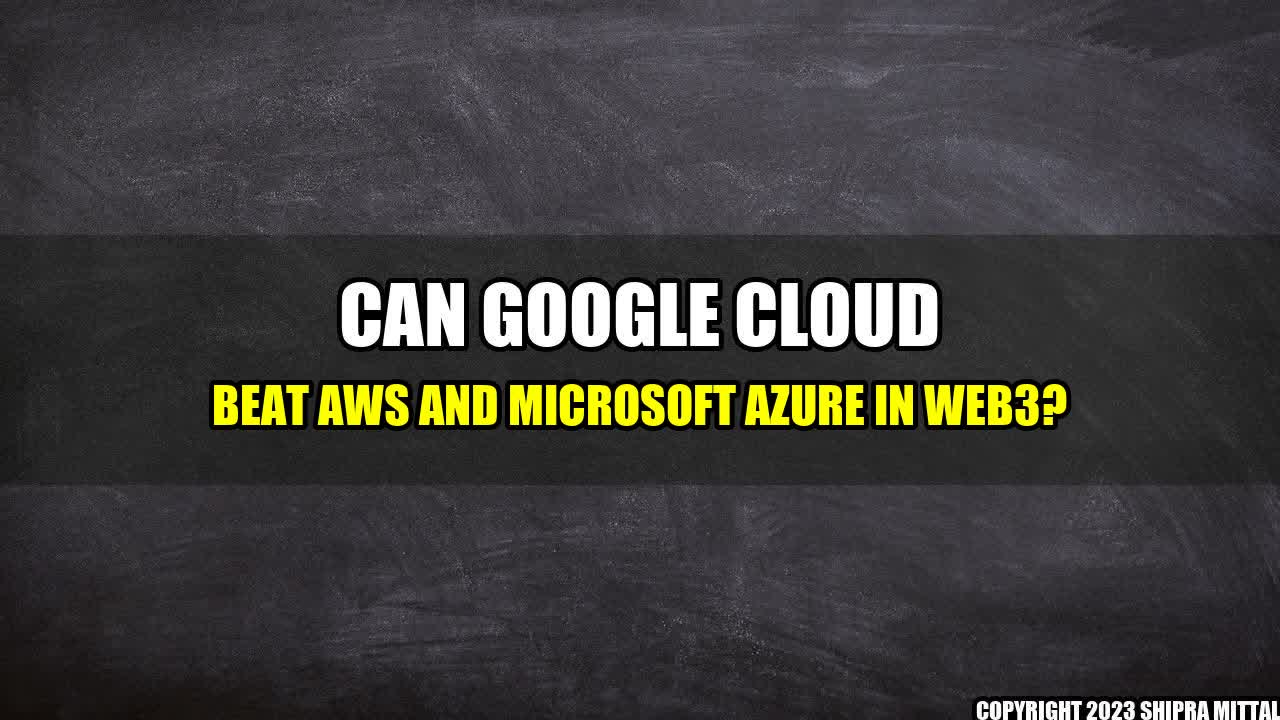The Story of Web3 and Cloud Computing
Imagine a world where the internet is not just a tool for communication and information exchange, but a place where people have true ownership and control over their digital assets. That's what Web3 promises to deliver. With decentralized applications (dApps), smart contracts, and blockchain technology, Web3 is set to revolutionize the way we interact online.
But for Web3 to work seamlessly, it needs a reliable and robust infrastructure that can handle the high demands of decentralized networks. That's where cloud computing comes into play. Cloud providers like AWS, Microsoft Azure, and Google Cloud are essential for hosting and managing the backend of Web3 applications.
Currently, AWS and Microsoft Azure dominate the cloud computing market, with a combined market share of over 50%. But could Google Cloud beat them in Web3?
Cloud Computing Market Share
According to recent data from Synergy Research Group, AWS controls 33% of the cloud infrastructure market, followed by Microsoft Azure at 18%, and Google Cloud at 9%. While Google Cloud has shown significant growth in recent years, it still lags behind AWS and Microsoft Azure in market share.
However, when it comes to blockchain-related services, Google Cloud has been a trailblazer. In 2018, Google Cloud became the first major cloud provider to offer a blockchain service called Blockchain-as-a-Service (BaaS). BaaS enables developers to build, test, and deploy blockchain applications using Google's infrastructure. Since then, Google Cloud has continued to invest heavily in blockchain technology, announcing partnerships with Chainlink and Theta Network, among others.
Why Google Cloud Could Beat AWS and Microsoft Azure in Web3
- Expertise in Blockchain Technology: Google Cloud has demonstrated a deep understanding of blockchain technology and its potential to transform industries. By investing in blockchain-related services and partnering with leading blockchain projects, Google Cloud is positioning itself as a key player in the decentralized world of Web3.
- Strong Networking Infrastructure: With its worldwide network of data centers and high-speed fiber optic cables, Google Cloud has the infrastructure to support decentralized networks that require low latency and high bandwidth. Google's Cloud Spanner, a globally distributed relational database, could be particularly useful in creating decentralized databases for Web3 applications.
- Integration with Google Services: Google Cloud is tightly integrated with Google's suite of services, including Google BigQuery, Google App Engine, and Google Kubernetes Engine. This makes it easier for developers to build, deploy, and manage Web3 applications on Google Cloud, and could give it an edge over AWS and Microsoft Azure in terms of developer adoption.
Conclusion
While AWS and Microsoft Azure currently dominate the cloud computing market, Google Cloud has several advantages that could help it become a leader in the Web3 era. Its expertise in blockchain technology, strong networking infrastructure, and integration with Google services make it a strong contender. However, AWS and Microsoft Azure have a head start in market share and may continue to dominate the general cloud computing space. It remains to be seen whether Google Cloud can overcome this disadvantage and emerge as the preferred cloud provider for Web3 applications.

Akash Mittal Tech Article
Share on Twitter Share on LinkedIn